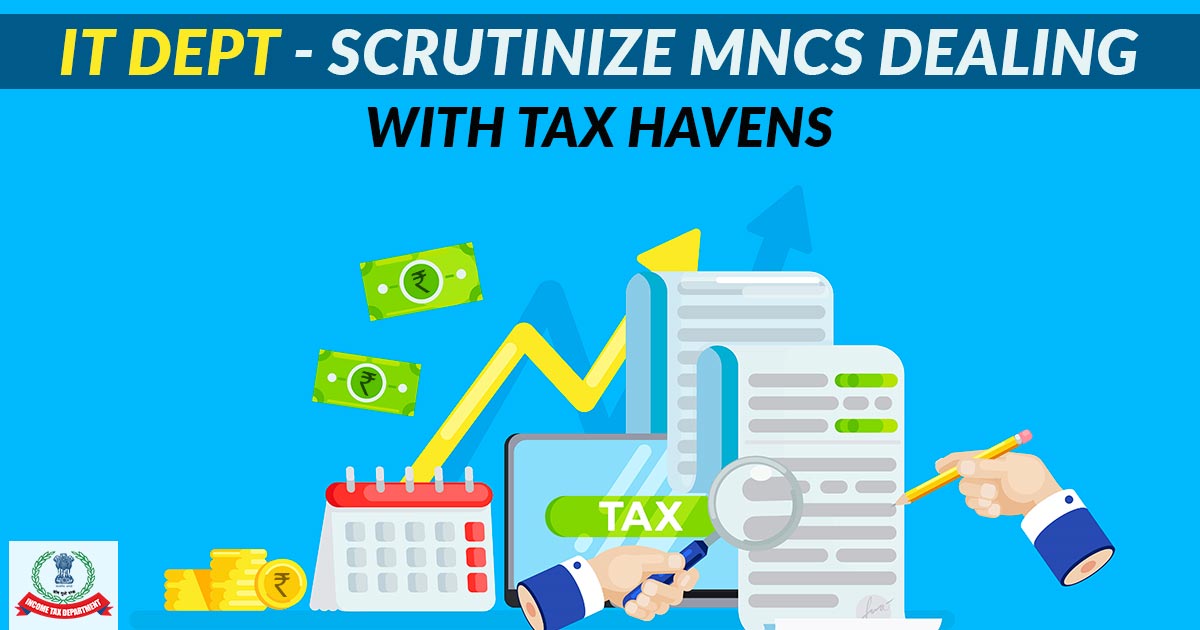
The IT department has commanded the field officers to scrutinize the financial transactions of the entities/businesses that come under the surveillance of ‘tax haven’ countries and jurisdiction. The Central Board of Direct Taxes 
The motive is to be a bit extra watchful of transactions with such financial institutions, said an influential from the department. The department is digging into more details to ensure that businesses are not routing their dealings to these regimes in order to get a lower tax benefit. Under the BEPS project, the tax regimes offer very low to zero tax rates for the companies that have no ‘economic substance’ under the jurisdiction. It is regarded as a harmful practice. The benefits are given to organizations for economic co-operation and development.
Tax officers are strictly analyzing the income tax practices followed by the tax haven countries (of which list is given by CBDT) to find out which country is practicing the harmful tax regime. The tax regimes of such countries are still to be scrutinized along with the changes in the tax system adopted by them. Like Jordan, for now, is the harmful tax regime whereas Saint Kitts and Nevis (the other tax havens) are still under observation and some are re-classified. The tax department is working just as needed by Action 5 of the BEPS project. This has been a global concern along with the businesses shifting their operations to inviting jurisdictions.
Read Also: Income Tax Dept Offers Online E-calculator to Assess Tax Benefits

India’s financial dealings going on in such tax haven regimes need to be analyzed thoroughly to ensure that there are enough economic substance and commercial rationale supported by the documents for using such tax haven jurisdiction, said Amit Maheshwari (Partner at AKM Global consulting firm). The economic substance here denotes real economic activity. The suspected regimes promote and give facilities of Base Erosion and Profit Shifting (BEPS) from countries where actual economic activity is practiced. The Organization for Economic Cooperation and Development released the papers reviewing tax regimes in 57 countries.
The command from CBDT is re-emphasizing on government’s efforts to tax the profits that are shifted by MNCs to harmful tax regimes for lower tax availed without actually moving their economic activity or substance to such tax regimes, that is ultimately leading to tax erosion., said Rakesh Nangia, chairman of Nangia Andersen Consulting.